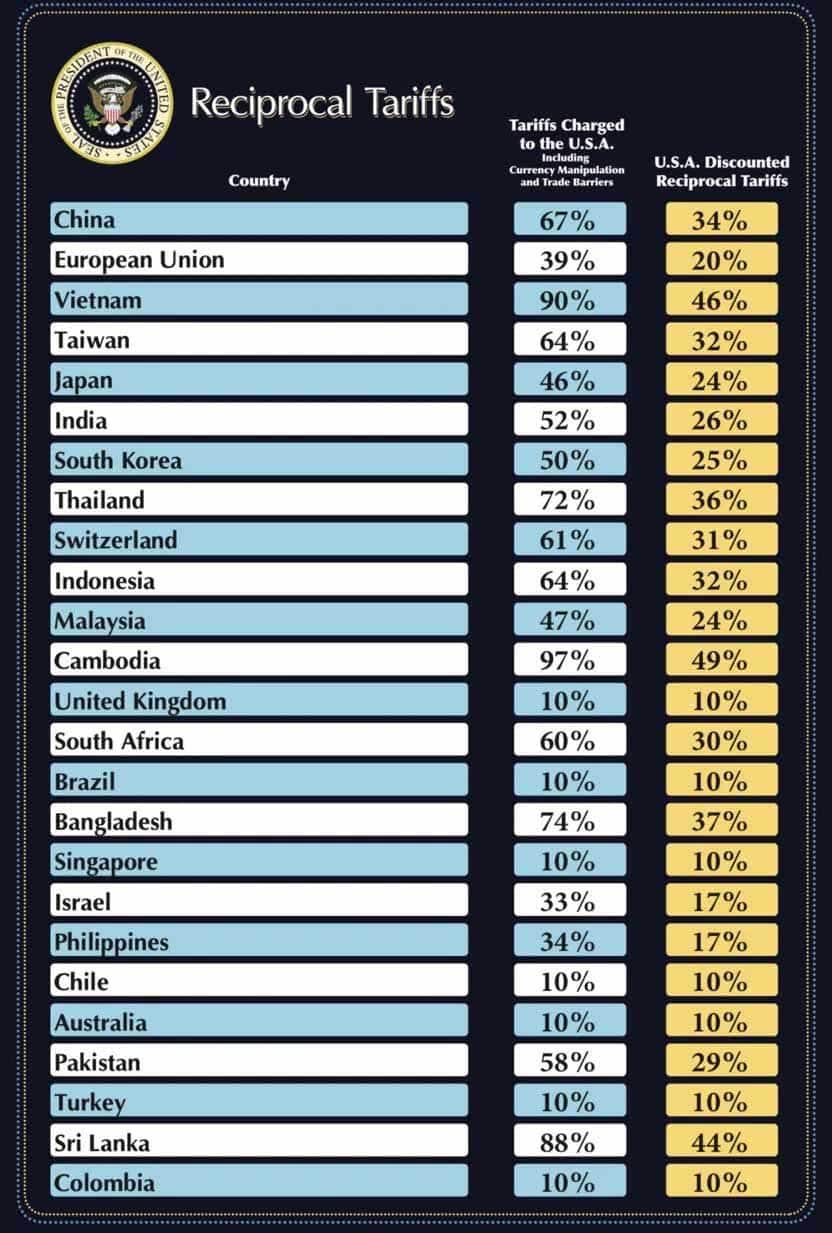Trump slaps Pakistan with a 29% Tariff on all imports.
United States President Donald Trump imposed massive tariffs on almost all imports with stern levies on dozens of countries, including Pakistan, in a move that also affected Washington’s top allies.
Trump imposed a 29% tariff on Pakistan in an escalation that marks a turn in US-Pakistan trade relations, as Trump’s broader strategy includes higher tariffs on a wide array of goods.
The tariff is part of a broader strategy announced by Trump on Wednesday, which also includes a 10% baseline tariff on all imports to the United States, effective April 5, and additional steep duties on other countries like China.
Pakistan denounced the new tariff, arguing that the move could significantly damage the country’s export-driven economy.
The imposition of a 29% tariff comes after Islamabad’s 58% tariff on US goods, a retaliatory measure aimed at challenging the US’s previous trade barriers.
Pakistani officials are expected to announce countermeasures in the coming days, further complicating the trade relationship between the two nations.

The economy of South Asian nations is already grappling with challenges and faces the added burden of these escalating tariffs, and new duties could disrupt key export sectors, such as textiles, and raise costs for Pakistani consumers on imported goods.
Those familiar with development said this move could deepen Pakistan’s economic difficulties, further straining its trade relationships with the US and potentially other global powers.
Repercussions of new tariffs
The tariffs on Islamabad are particularly concerning for the country’s export sector. Pakistan’s textile industry is a major contributor to its economy and could be hit hardest by these new measures.
With the imposition of a 29% tariff, Pakistani goods could become less competitive in the US market, exacerbating the country’s trade deficit and further straining its economic recovery.
Economists are also warning that the broader global trade tensions could lead to higher inflation, lower growth, and increased costs for consumers around the world.
As Trump’s policies ripple through the global economy, Pakistan is poised to feel the effects more acutely than many other nations.

Trump Tariff
Trump’s move sent shockwaves through global markets as the US import tax rate surged to 22%, a drastic increase from just 2.5% in 2024, with experts predicting that these measures could push the global economy into a recession.
China, the world’s second-largest economy, faces an additional 34% tariff on top of the previous 20% duties. Beijing has called for the immediate removal of these new tariffs and vowed to take retaliatory actions.
Meanwhile, the European Union and Japan also face significant tariffs, with the EU hit by a 20% tariff and Japan facing a 24% levy.
These measures could lead to higher prices for consumers, slow economic growth, and create job losses in some sectors.
While some American industries may gain jobs, the overall impact on the economy could be negative, especially since manufacturing jobs are often automated and costly to bring back to the US.
